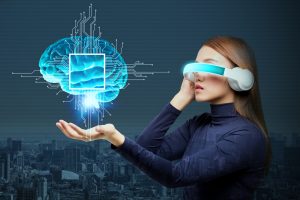Introduction: In the rapidly evolving landscape of Trends in Higher Education 2024, anticipating and adapting to future trends is paramount for institutions, educators, and students alike. As we delve into the Trends in Higher Education 2024: Future Focused, it becomes evident that embracing change is not merely an option but a necessity for success. Let’s
Introduction:
In the rapidly evolving landscape of Trends in Higher Education 2024, anticipating and adapting to future trends is paramount for institutions, educators, and students alike. As we delve into the Trends in Higher Education 2024: Future Focused, it becomes evident that embracing change is not merely an option but a necessity for success. Let’s explore seven pivotal trends shaping the future of higher education and strategies to thrive in this dynamic environment.
Embracing Technology Integration

Image by: Yandex
In an era where technology permeates every aspect of our lives. Trends in Higher Education 2024 institutions are increasingly integrating innovative technologies into their educational frameworks. From virtual reality-enhanced learning experiences to AI-driven personalized tutoring, technology is revolutionizing the way students engage with content and educators facilitate learning.
Empowering Lifelong Learning:
Gone are the days when Trends in Higher Education 2024 was confined to a finite period of one’s life. The future of higher education emphasizes the importance of lifelong learning, with institutions offering flexible, modular learning pathways tailored to the diverse needs of learners at different stages of their careers.
Cultivating Global Perspectives:
Trends in Higher Education 2024 in an interconnected world, fostering global competencies and cultural fluency is essential for students preparing to navigate diverse professional landscapes. Institutions are increasingly prioritizing global engagement through study abroad programs, international partnerships, and cross-cultural curriculum integration.
Promoting Interdisciplinary Collaboration:
Trends in Higher Education 2024 breaking down silos between disciplines fosters creativity, innovation, and problem-solving skills essential for addressing complex real-world challenges. Future-focused institutions are promoting interdisciplinary collaboration through multidisciplinary research initiatives, cross-departmental courses, and collaborative project-based learning experiences.
Personalizing Learning Experiences:

Image by: Yandex
Trends in Higher Education 2024 recognizing that each learner is unique, personalized learning approaches are gaining traction in higher education. Adaptive learning platforms, competency-based assessments, and individualized learning plans cater to diverse learning styles, paces, and preferences, empowering students to take ownership of their educational journey.
Embracing Sustainable Practices:
Trends in Higher Education 2024 with growing awareness of environmental and social issues, sustainability has become a cornerstone of future-focused higher education. Institutions are integrating sustainability principles across campus operations, curriculum development, and research endeavors, instilling a sense of environmental responsibility in future generations.
Navigating the Future Workforce Landscape:
As the nature of work evolves rapidly, higher education institutions play a crucial role in preparing students for the future workforce. Emphasizing critical thinking, creativity, adaptability, and digital literacy equips graduates with the skills needed to thrive in an ever-changing professional landscape.
Trends in Higher Education 2024: Future Focused:

Image by: Yandex
In the Trends in Higher Education 2024: Future Focused, institutions are embracing innovation, adaptability, and inclusivity to prepare students for success in an uncertain future. By leveraging technology, promoting lifelong learning, cultivating global perspectives, and embracing sustainability, higher education is evolving to meet the needs of tomorrow’s learners.
Conclusion:
As we navigate the Trends in Higher Education 2024: Future Focused, it is evident that embracing change and innovation is crucial for institutions and individuals alike. By staying adaptable, fostering lifelong learning, promoting interdisciplinary collaboration, and prioritizing sustainability, higher education can equip students with the skills, knowledge, and mindset needed to thrive in an ever-changing world.
FAQs:
How are institutions integrating technology into higher education?
Institutions are integrating technology through virtual reality-enhanced learning experiences, AI-driven personalized tutoring, and online collaboration platforms.
What role does lifelong learning play in the future of education?
Lifelong learning empowers individuals to adapt to evolving skill demands, stay competitive in the workforce, and pursue personal and professional growth opportunities throughout their lives.
Why is interdisciplinary collaboration important in higher education?
Interdisciplinary collaboration fosters creativity, innovation, and problem-solving skills essential for addressing complex real-world challenges and driving meaningful societal impact.
How do personalized learning experiences benefit students?
Personalized learning experiences cater to diverse learning styles, preferences, and paces, empowering students to take ownership of their educational journey and achieve mastery at their own pace.
What is the significance of sustainability in higher education?
Sustainability initiatives in higher education promote environmental responsibility, ethical stewardship, and the integration of sustainable practices across campus operations, curriculum, and research endeavors.
How are higher education institutions preparing students for the future workforce?
Higher education institutions are preparing students for the future workforce by emphasizing critical thinking, creativity, adaptability, digital literacy, and essential soft skills necessary for success in a rapidly evolving professional landscape.
















